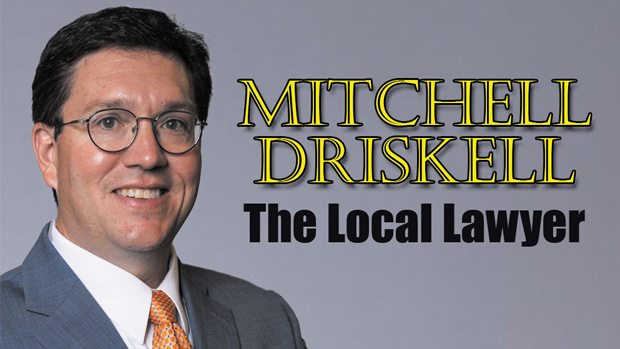
You could not pay me enough to get into a public debate over abortion. Well, you could, but I write this column for free, so this column does not pay me enough to get into a public debate over abortion. This column is an explanation, not a criticism or support.
“There is fear in the gay community,” is what a married, gay man said to me yesterday morning when calling to discuss the future of gay rights after the Dobbs decision.
The Dobbs opinion went out of its way to explicitly say that the abortion decision is different and will not affect gay marriage or other gay rights. By my count, they said it five (5) times. They were crystal clear that abortion is different because there is a life or potential life involved in abortion that deserves consideration by the voters of the states.
There was only one Judge, Clarence Thomas, who would say that there is no such thing as an implicit Constitutional right. All three of the Judges that Trump nominated said that Dobbs will not affect gay rights implied by the Constitution.
To get rid of all implicit Constitutional rights, Thomas would have to stay on the Court long enough for four Justices to leave the Court and be replaced by four new Judges all nominated by Presidents more to the right than Trump while that President had a Senate far enough to the right that they would approve those nominees.
That is a mathematical impossibility. It cannot happen.
What will happen is that Justice Thomas will leave the court as the only Justice who wants to eliminate the practice of finding implicit Constitutional rights. Politicians and media who are stoking fear about gay rights and other implicit Constitutional rights are doing the country a disservice.
America is a collection of separate states. After the revolution, many States did not want a combined, national government at all. It took George Washington to step in and convince everyone that coming together to form a national union was the way to go.
The Constitution was a compromise, intended to protect the States from losing their power to govern themselves locally. Since then, the political and social history of America has been funneling power to Washington and the creation of a more national identity (except Texas people) to the point where most people now do not question the federal government’s power to act – but that is exactly the issue in Dobbs – can the federal government tell the states what they can or cannot do about abortion?
The Constitution has explicit, protected rights (free press, religion, speech). Abortion is not one of them. Roe v Wade said that abortion was a protected, implied, “unenumerated” right.
The test to decide if a right is a protected unenumerated is to look at history to see if this right was recognized throughout our history so much so that when the founding fathers said “liberty” cannot be infringed they meant this right too.
Only if this historical test is met, only then can the big federal government tell the people what they can or cannot do regarding an unenumerated right. Roe, then Casey, glossed over this historical analysis requirement, leaving the decisions on shaky ground ever since.
There are two ways to look at this notion of unenumerated rights. One way is to look at it as the Supreme Court stepping in and protecting people from local and state governments that are trying to step on important rights; therefore, the Supreme Court should not be shy to interpret the Constitution broadly, cast a wide net to find these unenumerated, implied rights.
The other way to look at unenumerated rights is to see it as a group of Ivy-league educated, elite federal Judges telling local and state voters what laws their representatives can pass or not – that the act of a federal court telling voters what they can and cannot do is not protecting rights but is actually taking rights away from the people; therefore, we should be slow to find unenumerated, implicit rights in the Constitution because it is better to let the States govern themselves.
This debate goes back to the tension between the power of the big, federal government over the States, which is why we must keep our high school civics in mind when thinking about Dobbs.
The Dobbs decision is not about whether abortion is good or bad, not about whether women have a right to an abortion at a specific time during pregnancy, or at all.
Dobbs is about whether the federal government has the authority to tell the people that they cannot pass laws concerning abortion.
The Dobbs court said that we must apply the right Constitutional law to the issue, and that Constitutional law requires historical analysis. Dobbs went on to say that abortion does not satisfy this historical analysis test, therefore, the Supreme Court does not have the authority to recognize abortion as a protected right and cannot tell the people what laws they can or cannot pass regarding abortion.
Dobbs said the Constitutional rights of the people to decide the abortion issue cannot be infringed by the Court. That’s what Dobbs says.
Don’t blame or congratulate me, I did not write it.


